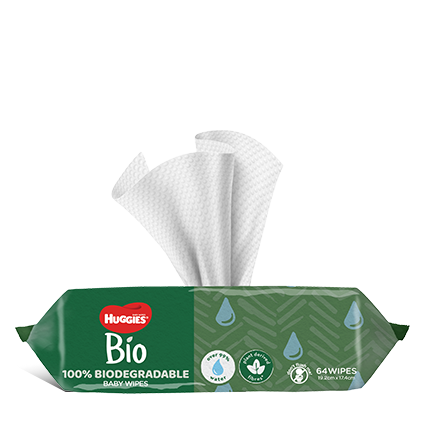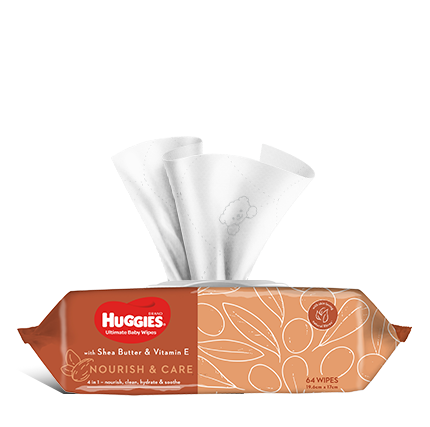Babies can start teething at any age from 4 months to 2 years old. We may believe that our child’s baby teeth will fall out at a later stage, so there’s no need to worry about taking care of them, and that we can just put more effort when their adult teeth come through later in life. However even baby teeth can suffer from tooth decay and caries. In fact, according to Adelaide University newly emerged teeth are particularly vulnerable to dental decay.
It’s important to look after the baby teeth as not only do they help children to eat and speak, but they also guide the permanent adult teeth into position. Where possible, it is best to avoid getting into a situation where they need to be pulled out.
The good news is that tooth decay is largely preventable.
How can babies get tooth decay and caries while teething?
Tooth decay is when a hole, called a cavity, forms in a tooth. The tooth decay process is also called ‘caries’.
Even before the teeth appear, bacteria in the mouth feed on sugars from foods and drinks. These bacteria produce acid. Monique Christidis explains “This acid can travel down into the gums where the unerupted baby teeth lay, causing decay in the tooth whilst still embedded in the gums.
“There have been documented cases of toddlers getting teeth coming through that are already black and have holes!
As soon as the first teeth emerge, their enamel is attacked by food acids and plaque every time your baby eats or drinks. The enamel surface of your baby’s teeth is thinner and not as tough as adult teeth. making them at greater risk of decay.
It is important to prevent tooth decay as by the time the signs are visible on the teeth, it means that it cannot be reversed, and major dental treatment may be needed.
Steps you can take to prevent tooth decay and caries
-
Avoid excess sugar
Tooth decay is caused mainly by eating too many foods that are high in sugar or highly acidic. It is important that the diet of babies and toddlers are following the recommended NHMRC guidelines, says Christidis. Some parents may think to give more fruit as it’s natural sugar, however it's still sugar and can still affect their teeth. 5 serves a day of fruit means an excess, which can still be doing as much harm to the teeth as if the child is being given sugary sodas to drink.
Raising Childrens Network advises to only give babies breastmilk or formula until you introduce solids at around 6 months. The Australian Breastfeeding Association explains, that even though breastmilk contains natural sugars, the way a baby breastfeeds, means that no milk settles around the baby’s teeth.
Aim to provide healthy, low sugar meals and avoid too much snacking in between that gives the chance for acid to constantly attack the teeth and wear away enamel.
Milk and water are ideal beverages.
The ADA advises that even sugar free drinks are not ideal as they can still wear away the tooth enamel. Limit the amount of juice provided to half a cup (125ml) per day.
-
Practice teeth brushing
After the first teeth erupt through the gum:
Daily wipe the teeth and gums gently with a clean damp washcloth or gauze pad or use a ‘finger brush.’
At about 18 months:
-Use a small toothbrush with soft bristles, after breakfast and before bedtime.
-You can start teaching your child how to hold the brush and brush your teeth in front of them as they like to copy.
-As they will not be able to do a proper job on their own at this age, you should help brush their teeth, aiming to reach every surface of every tooth.
At two years old, your child can start using toothpaste which is labelled for their age, containing safe and appropriate amounts of fluoride for their age.
Ensure there are no drinks or snacks given to baby after brushing at bedtime.
-
Importance of fluoride for strong teeth
Fluorides are important for protecting teeth from decay as they work with the minerals in mouth saliva to restore and harden teeth damaged by early reversible decay. It also helps teeth surface mature faster and become more resistant to decay. Drinking tap water helps in this way, as fluoride is naturally present in tiny amounts.
-
Take care when handling feeding accessories
Do not clean your dummy by placing it in your mouth or taste your child’s food on the spoon before you feed to them, as bacteria can move from yours to theirs and cause tooth decay.
-
Avoid bottle feeding for lengthy periods
When babies have been bottle fed for too long, it can lead to decay on the top front teeth This can also happen with a child constantly drinking sweetened drinks or fruit juice, as prolonged acid attack can happen.
Do not leave the bottle in the mouth at bedtime, as the risk of decay is even higher. Saliva flow in the mouth during sleep is greatly reduced, so acids that form in the mouth are washed away at a slower rate. Adelaide University advises that if a bottle is needed at night to settle the child, to offer only plain water in a bottle and remove it once the child is asleep.
Change from the bottle to a cup or feeding mug as soon as possible, preferably by 12 months.
Plaque is a clear, sticky film on the teeth that forms daily in the mouth. It contains millions of bacteria which use sugar as their food, at the same time producing acid which attacks and softens the teeth.
When the acid attacks our teeth, it can last for 20 minutes, and saliva can help clean this up. However, if there is continual acid on the teeth, there is not enough time to recover, and so tiny holes start to develop below the surface of the teeth. The teeth then become weak and the enamel surface breaks. Bacteria can now easily enter, and the decay process is accelerated.
In the initial stages, teeth may have white chalky areas. In the later stages, teeth will have brown or black patches.
You should occasionally check your child’s teeth for white, dark spots or discoloured patches on the teeth. If you see this and they don’t rub off or you can’t brush them away, brown, or black spots on the teeth that do not rub or brush away, see a dentist as soon as you can for advice.
Other symptoms of tooth decay may include sensitivity to heat or cold in foods or pain around the tooth.
If you notice any changes, please visit an oral health professional quickly.
Make your baby’s first dental appointment at around 12 months of age for a check and so your child can get used to the idea of a dentist and perhaps receive some tips from them.
REFERENCES
https://www.adelaide.edu.au/arcpoh/dperu/caries/pamphlets/DecayDL9.pdf
Written by Tracey Cheung, April 2023. Tracey is a freelance writer who specialises in creating health and wellness content for the community, drawing on her experience as a mother.
Reviewed by Jane Barry, Midwife and Child Health Nurse, February 2024.


Last Published* June, 2024
*Please note that the published date may not be the same as the date that the content was created and that information above may have changed since.

















